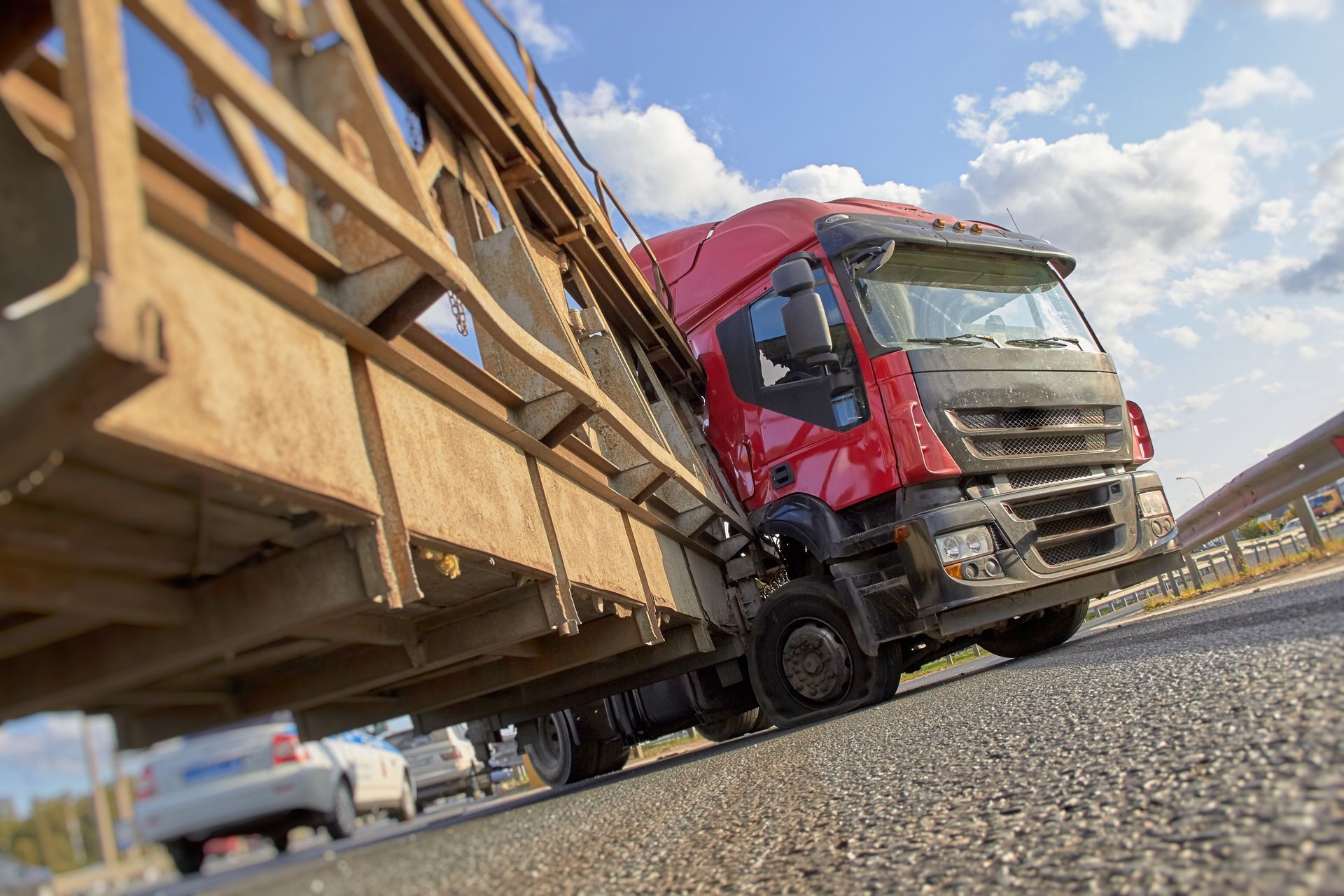ATL Elite Common Causes of Truck Accidents

Truck accidents are a serious concern on our roadways, often resulting in devastating consequences for those involved. Understanding the common causes of these accidents is crucial for promoting road safety and holding responsible parties accountable. In this comprehensive guide, we'll delve into various factors that contribute to truck accidents, shedding light on the roles of driver fatigue, speeding, distracted driving and equipment malfunctions.
1. Driver Fatigue
Driver fatigue stands as a silent menace on the roads, emerging as a leading cause of truck accidents. The demanding schedules that truck drivers face propel them into extended periods of driving without adequate rest.
Fatigue impairs crucial aspects of a driver's ability, including reaction times, decision-making abilities and overall cognitive function. While federal regulations mandate maximum driving hours and mandatory rest breaks, non-compliance and pressure to meet deadlines often result in exhausted drivers navigating the roads, putting themselves and others at risk.
Addressing this issue requires investment in infrastructure, ensuring that truckers have accessible and safe locations to take the necessary breaks, promoting both driver well-being and overall road safety.
2. Speeding/Violating Traffic Laws
Speeding is a pervasive issue within the trucking industry, fueled by the pressure to meet tight delivery schedules. Exceeding speed limits becomes a temptation as drivers strive to adhere to unrealistic timelines. The consequences of high speeds extend beyond violating traffic laws; they significantly reduce a truck driver's ability to react swiftly to sudden changes in traffic or road conditions. Understanding the reasons behind speeding incidents is crucial for implementing preventative measures and fostering a safety-centric culture within the industry.
3. Distracted Driving
While distracted driving commonly conjures images of mobile phone usage, it encompasses a broader spectrum for truck drivers. Distractions may arise from adjusting in-cab technology, eating or even daydreaming. The unique challenges posed by the size and weight of trucks amplify the dangers of distractions. In-cab technology, including GPS devices and communication systems diverts attention from the road. Establishing clear policies on technology use and promoting awareness of the perils of distracted driving contribute to creating a safer driving environment.
4. Equipment Malfunctions: The Role of Maintenance
Trucks, intricate machines with numerous components, require meticulous maintenance for safe operation. Equipment malfunctions can result from poor maintenance practices, manufacturing defects or normal wear and tear. Regular maintenance checks, adherence to safety protocols and prompt repairs are essential in preventing accidents caused by faulty equipment. Trucking companies must invest in comprehensive maintenance programs and prioritize the safety of their fleet to mitigate the risk of accidents stemming from equipment malfunctions.
5. Adverse Weather Conditions
Weather conditions play a pivotal role in the safety of trucking operations. Adverse weather, such as rain, snow, ice or fog creates challenging driving conditions. Reduced visibility and slippery roads elevate the likelihood of accidents. Truck drivers must undergo adequate training to handle various weather scenarios, and dispatchers should consider weather forecasts when planning routes. This proactive approach ensures the safety of both drivers and other road users.
6. Inadequate Training: Knowledge Gaps on the Road
Insufficient training for truck drivers perpetuates a persistent issue contributing to accidents. Operating a commercial truck demands specialized skills and knowledge. Inexperienced or poorly trained drivers may struggle to navigate challenging road conditions, handle the size and weight of the truck or respond effectively in emergency situations. Investing in comprehensive training programs becomes imperative to mitigate the risks associated with inadequate driver training and create a safer driving environment.
7. Improper Loading: Balancing the Cargo
Improper loading practices can have severe consequences for truck stability and control. Overloaded trucks or unevenly distributed loads can lead to accidents, particularly during turns or sudden maneuvers. Prioritizing proper loading procedures, including weight distribution and securement, becomes essential for trucking companies to prevent accidents arising from cargo-related issues. Routine inspections and adherence to loading guidelines play a critical role in ensuring safe transport.
8. Road Infrastructure Issues: Navigating Hazards Beyond Control
Road infrastructure problems contribute significantly to truck accidents, jeopardizing both truck drivers and other motorists. Poorly maintained roads, inadequate signage and construction zones may create challenging conditions for truckers, leading to accidents. Identifying areas prone to infrastructure issues and advocating for necessary improvements become crucial for enhancing overall road safety.
9. Fatigue from Long Hours of Driving
Tiredness resulting from extended hours behind the wheel is a prevalent issue in the trucking industry. Fatigue can compromise a driver's alertness, leading to slower reaction times and impaired decision-making. This emphasizes the need for trucking companies to address not only diagnosed health issues but also the fatigue that can accumulate from the demands of long-distance driving.
10. Insufficient Truck Maintenance
Proper maintenance is critical for the safe operation of trucks. Neglecting routine inspections and necessary repairs can lead to mechanical failures, increasing the risk of accidents. Trucking companies must prioritize a proactive approach to maintenance, investing in regular check-ups and timely repairs to ensure the roadworthiness of their vehicles.
11. Driver Health Issues: The Impact on Safe Driving
The health and well-being of truck drivers directly influence their ability to operate vehicles safely and efficiently. Health issues such as untreated sleep apnea, cardiovascular problems or other medical conditions can impair a driver's ability to drive safely. Regular health check-ups, awareness programs and encouraging a healthy lifestyle contribute to reducing accidents caused by driver health issues.
Your Trusted Partner in Truck Accident Claims
Understanding the common causes of truck accidents is a crucial step in promoting road safety and preventing devastating consequences. Addressing issues such as driver fatigue, speeding, distracted driving and equipment malfunctions requires a collaborative effort from trucking companies, drivers and regulatory authorities. By raising awareness, implementing preventative measures and holding accountable those responsible, we can strive to create a safer environment for all road users.
At ATL Elite, our dedication lies in providing resources to individuals impacted by truck accidents. Explore our attorneys' page to connect with a nearby legal expert in truck crashes and discover the representation you need today.


